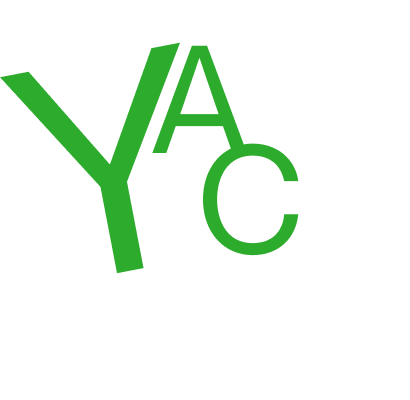Losers Gym ✗
Interview by Yasmine Rix
Published August 2017
-
Losers Gym ✗ took shape as a project space in 2016 between six studio holding artists within Backlit. Now closing from August 2017, we decided to speak to Sam Hewland about his experience as Losers Gym ✗ becomes part of Nottingham’s archive of artist-led fabric.
-
What made you start Losers Gym ✗ as a project space after securing it as a studio?
Around two years after moving into Losers Gym we decided that it might be cool to start up our own space. I think there were possibilities of people moving out of the space, and a few thinking of opening up a gallery type space in the city. We thought we have some redundant space so why not make it simpler for ourselves and open it in the studio.
How did you come to agree on the catchy name?
Simply, there was a Gym around the corner called ‘Winners Gym’. It has a great font seemingly with the individual letters condensed and then stretched to fit each individual windowpane. It’s also obviously just quite tongue and cheek, and not too serious. Why should there be anymore to it I guess is what we thought.
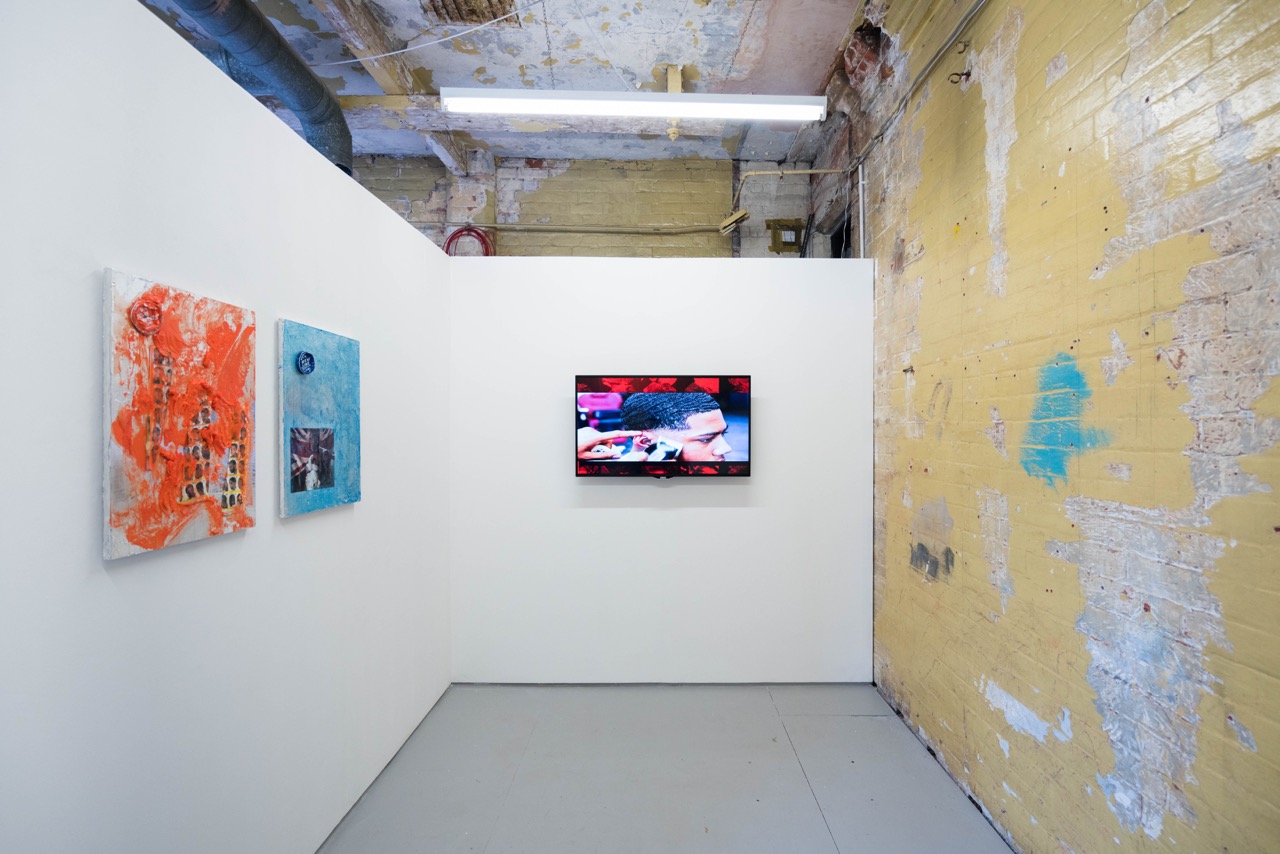
Shape Up, Ashley Holmes, 2017
I love the idea of your name with that backstory - site-specific names for studios is a historical trend. I think it sets a solid brand that people locally can recognise and the humour makes a good connection.
What did you envision when you started, how was it going to be different to other artist led studio-galleries/projects?
I’m not sure that we set out with the vision that it would be drastically different from other spaces. I think in the beginning we just wanted to show people what we were interested in, and allow artists who might really benefit from the opportunity to show. In the same way that everyone in the studio would if the chance is given. We all felt like this is especially important within early career artistic development, having the opportunity to show in a different city and gaining the insight into another artistic community.
I think we also tried to an extent to add to the field for Nottingham itself. Nottingham has always had a great history of artist-led spaces with Moot starting in 2005 and since then there have been a number of spaces and galleries that have come and gone. At the moment, Nottingham has about 5-6 artist-run spaces so it’s been great to be able to add to the map of Nottingham and let other people know about what’s happening. We hope that we have also given others a chance to see that it can be done on a really DIY small scale, whilst still emphasizing a professional outlook and presentation.
I like what you say here about scale in relation to output. This is a really important skill to have given economic circumstances and future uncertainties. Did you apply to any funding bodies or did you stay true to these principles?
I think we still stayed true to these principles, although I’m not sure what the principles are exactly that you are referring to. Does DIY mean that it all has to be completely funded by ourselves? Maybe?
We did manage to gain a small amount of money from Nottingham Trent University who have a fund that can be allocated to recent graduates who are staying in the city and wanting to achieve projects in the city. We also raised some money from the auction we had in the summer of 2016, this enabled us to raise some money and also give some money to the artists who donated.
I mean it was all DIY in terms of the way we approached LG. I guess in terms of the money that we received from the University it could feel like a contentious issue for us. The current direction that universities are taking in terms of education vs. business is troubling, and especially how this may impact upon teaching and student intake.
All of the money we got though went towards things for the space, or facilitating exhibitions, no one ever got any money on our end. I think this is a pretty common practice within small spaces, I’m no way saying that this is right, but in early development it can be the only way. I for one want to do this again I will be applying for funding next time. Economic anxiety is a fucker.
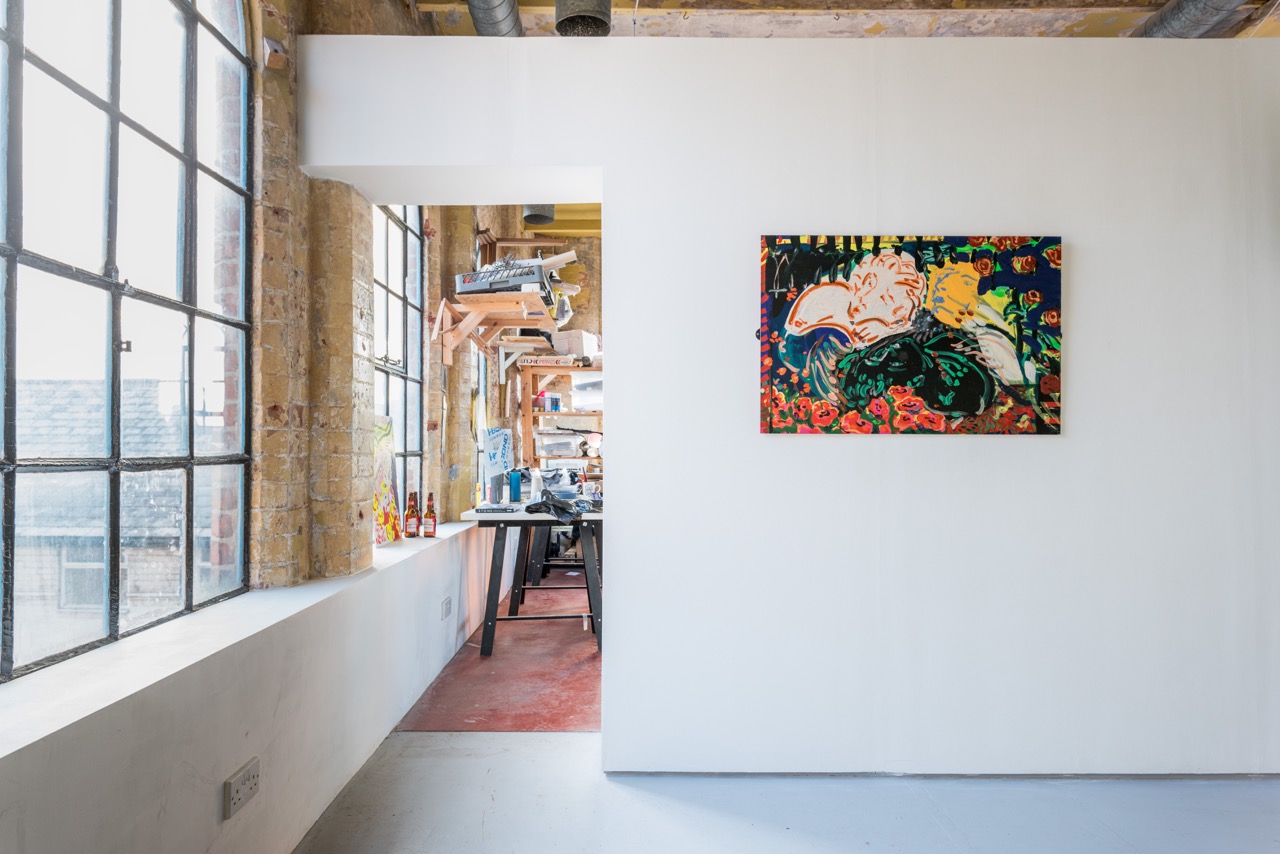
Bring Me Your Love, Zoe Spowage, 2016
Did artists approach you or did you ask for artists to exhibit?
We’ve always approached other artists to show. It’s not that we’ve not been open to people sending in proposals but I think if we’ve already got people in mind it can be difficult to accommodate. We organized the first few exhibitions by all of those (LG) who wanted to be involved in specific shows, (who was free basically) and just chatting and sharing who we really liked at that moment. We tried to make it unilateral, but how much that worked out is still yet to be discussed.
In the beginning we were picking the artists within a few weeks to go with the date in mind. I think this use of time as a perimeter can be advantageous in some way. We were almost just asking ‘have you got anything you want to show right now’? ‘Okay, cool lets work with that’.
I guess that made most things shown reasonably current for the artists, and allowed them the opportunity to try new ideas out. For some artists this seemingly felt easy and for others not so.
Alongside that we also tried to have a considered sense of where each artists was [geographically], and how this reflects on their current practice; the feasibility of making specific works, and how would we be able to facilitate and help them out as much as possible. This model pretty much continued throughout the time that the gallery was running.
Did you play a large part in the ‘curatorial’ process?
I guess it depended on the exhibition, with some the only curatorial roles we took would be in choosing the artists in the first place.
There were a number of times when we had to make work in the studio, be it heating and pouring 30kg of wax, making stretchers, or making an entire piece of work and gaining numerous small cuts along the way. I guess this just made us facilitators for the artists and hopefully kept us on some sort of unilateral level, not making it hierarchical between curators and artists. I dunno we just wanted to have fun and chat about other peoples work with them.
I think the idea of a unilateral non-hierarchical level was important for us all and reflected in the other events we did as Losers Gym. I guess the Collectors Dinner would be the best example of that. The dinner attempted to ask ‘who is a collector’, and ‘how do people outside of London collect contemporary artwork’? ‘Is there an art market in Nottingham’? ‘Can other artists and members of the public afford to spend money on artwork in the current climate’? ‘How can this be made more successful in Nottingham’?
I think the questions intended and brought on by the dinner hopefully reflect some of the outcomes we had as ‘curators’.
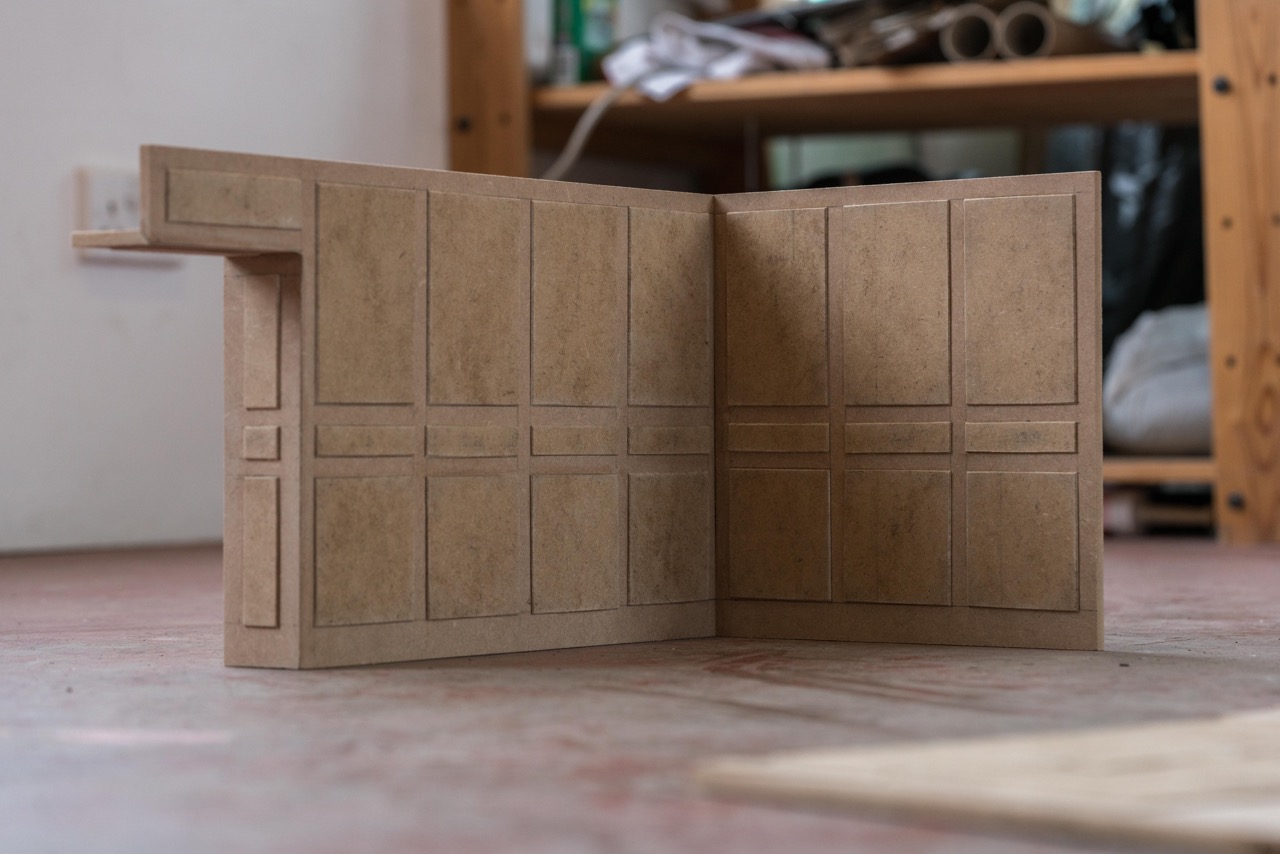
Affix, Claire Baily & Ian Jackson, 2017
The 'unilateral' relationship you mention is one I like to think of as quite unique to the artist-led space, and a really good point to make in contrast to a fickle [art] world.
Do you think that relationship is possible to achieve elsewhere, or only in the artist led studio? (If you feel you can answer!)
No I think it’s completely achievable in other situations, it think it does come down to other factors though. It’s probably more prevalent in the artist-run space because of the situations that most artists at certain stages find themselves in. Like I said before for us as a space I guess it’s that sense of allowing people to show they’re work, and play with ideas that the artist has been working on. Although this isn’t true in all cases because we then move into the discussion of what a sense of success and achievement is and how is that defined A. for the artists and B. how its seen by other artists and the public.
I guess there could be problems arising when you try to have an interaction between unilateral levels and a professional output, because hierarchical forms will want to push themselves through or specific people may want to achieve more, for themselves. I guess you have to have a sense of being part of a small space isn’t a personal endeavor for personal gain.
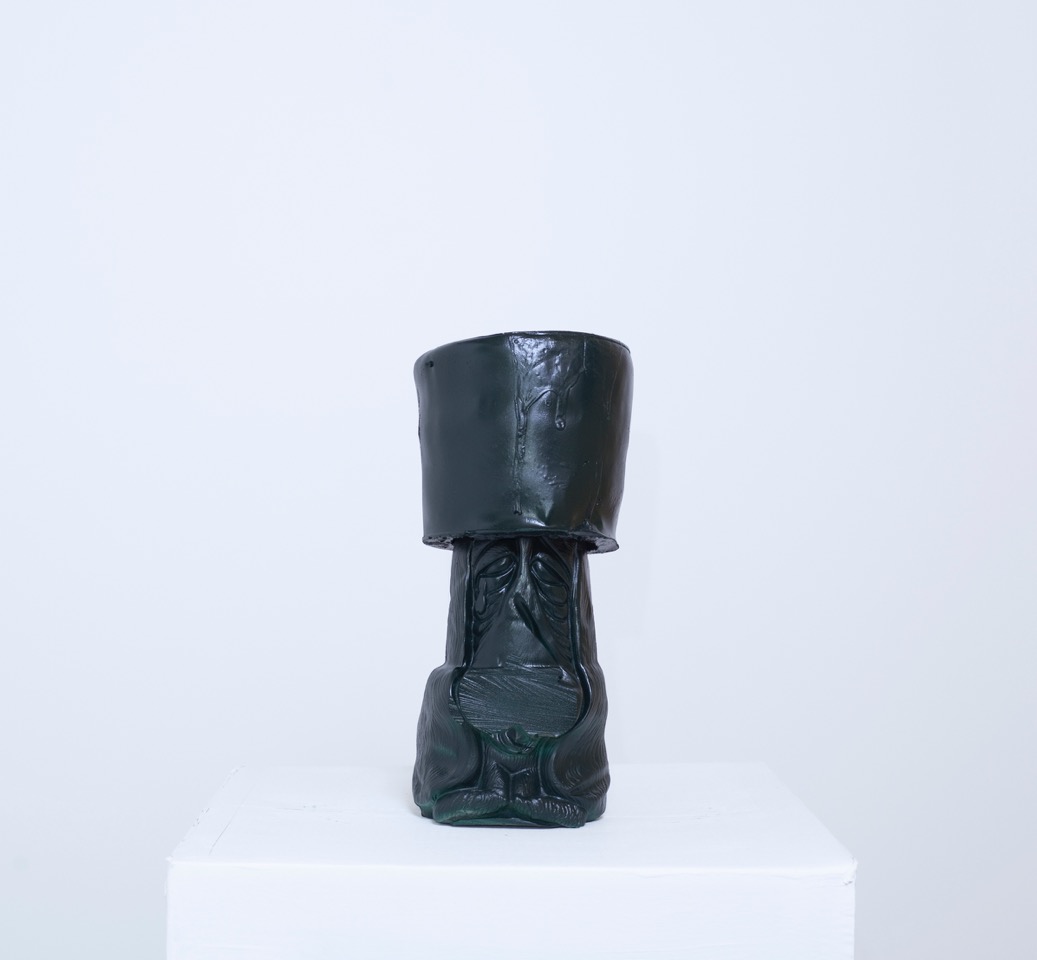
Suspect Device, Lucas Dillon, 2016
Out of curiosity, is it possible to briefly summarize any conclusions you had from these discussions on art markets.
I’m not sure we came up with any answers. I just hope that we were just able to ask how can it be achievable, especially if really we’d all like to sell our work. I think its something that has hopefully ‘inspired’ (although that word…), but other people have asked how it worked and I think others are thinking of taking the same model and using and elaborating on it so that’s great.
Looking back, do you feel like you achieved what you set out to do?
I guess in some ways we set out to achieve a sense of creating an environment for other artists to exhibit. I’m not sure we wanted it to be a huge amount more. Looking at the response people have had to the shows and ‘events’ such as Collectors Dinner, we have maybe achieved some of that. I think we just wanted to create a space within our own studio that we could have full control over. We could show who we wanted under our own time restraints.
I guess we did achieve some sense of showing artists we like, but on reflection I think we also had quite a limited program. Our program was not very varied and apart from looking at notions of fees and ability of the production of artwork for young artists we probably didn’t really tackle other problems in contemporary art. The diversity of the artists we showed maybe wasn’t varied enough and in some ways maybe we were only adding to a problem rather than helping to raise the right questions about it.
Most members of the original group have also now left and the last two, me (Sam) and Alex are both heading of to different cities, so Losers Gym as a name and a program has for now reached its end.
Alex has moved to Amsterdam to study an MA in Design / Think Tank for Visual Strategies at Sandberg Instituut
Sam has moved to Glasgow to study an MFA at Glasgow School of Art
Francis (Franco) is currently undertaking a tailoring course at UCA
Freddy is still a photographer in Nottingham, but is currently cycling from Italy to Norway
Jake is still running Aspirational Living and is about to move to Berlin to continue his studio practice
Josh is now a chef in London
-
If you like this why not read our interview with Shen Xin
-
© 2013 - 2018 YAC | Young Artists in Conversation ALL RIGHTS RESERVED
